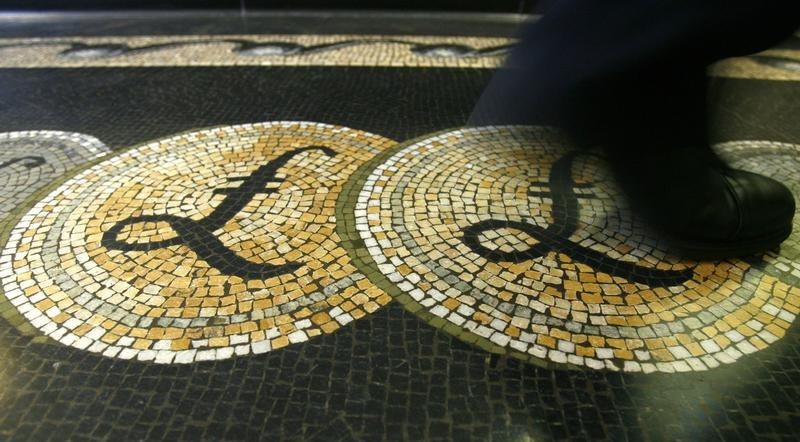By Jemima Kelly and Patrick Graham
LONDON, Feb 23 (Reuters) - Concerns that Britons would vote to leave the European Union at a June referendum pulled sterling down towards $1.40 and drove it to a fresh seven-year low on Tuesday.
The pound, which plummeted 1.7 percent on Monday, has lost 2.6 percent this week - its worst two-day showing since 2009.
Monday's fall, the biggest during David Cameron's six-year premiership, was triggered by several senior members of his Conservative party, notably popular London Mayor Boris Johnson, throwing their support behind the campaign to leave the EU.
That raised expectations that the June 23 referendum could bring about a "Brexit", or would at the least be very close, with several high-street bookmakers narrowing the odds of Britain leaving the bloc.
Sterling fell almost 1 percent on Tuesday to as low as $1.4017 GBP=D4 , its weakest since March 2009.
News that Germany's Deutsche Boerse (DE:DB1Gn) and the London Stock Exchange were seeking to create a large European bourse had little immediate impact on the currency, with the Brexit debate expected to dominate. fears are on the rise again despite the recent deal to safeguard the UK's special status inside the EU and keep it from leaving," said Credit Agricole (PA:CAGR) strategists. "These concerns should continue to cloud the outlook for sterling and could even escalate in the run-up to the referendum."
Against the euro, the pound weakened by half a percent to 78.33 pence EURGBP=D4 . And it stayed close to an almost-two-year low against a trade-weighted currency basket =GBP .
"In the immediate term, I cannot see it (sterling) retracing back towards the $1.4250-$1.4300 level. But no-one wants to have to buy the dollar at these levels," Tobias Davis, head of corporate treasury sales at Western Union in London, said.
Derivatives markets now show the largest bias towards sterling weakness over the next six months since at least the parliamentary elections of 2010.
Options hedging allowing companies and investment funds to hedge against volatility over the next six months is at its highest in over four years. GBPVOL=
(Editing by Raissa Kasolowsky and Alexander Smith)
